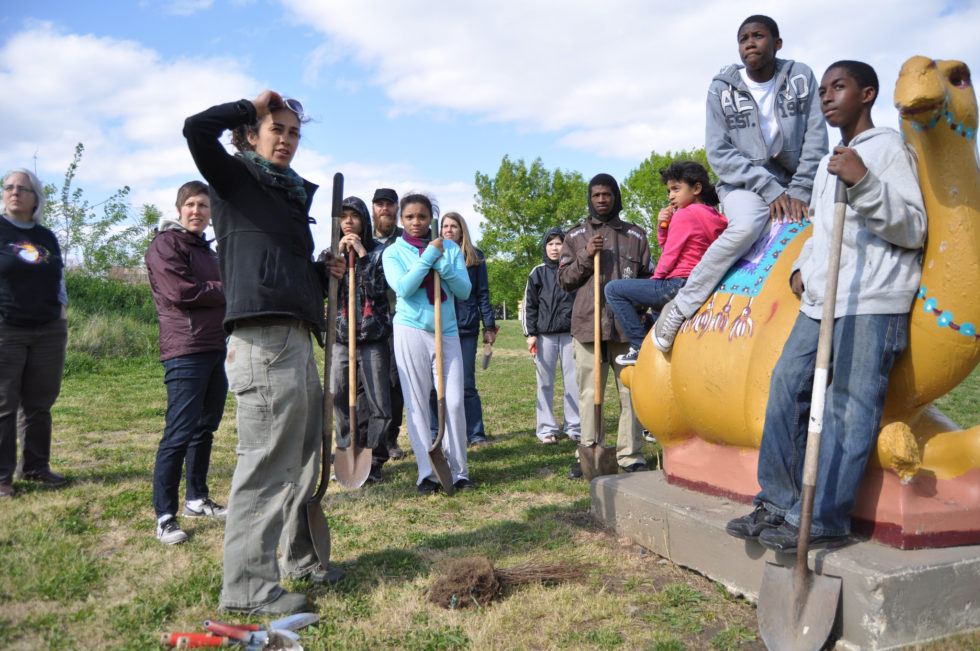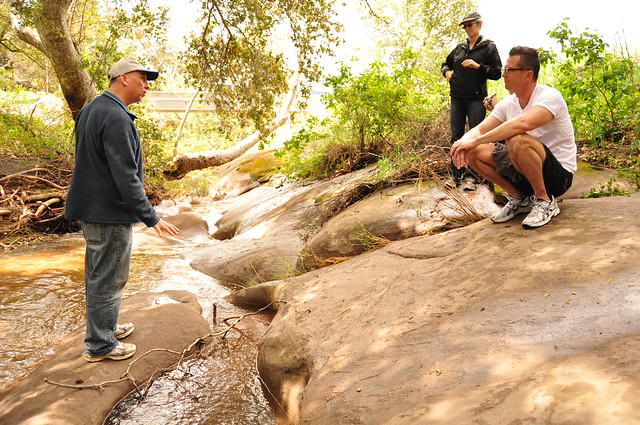
This post was originally published on my blog for The Mennonite two years ago
This week we’ve seen audio of Donald Trump’s bragging about sexual assault open up a nationwide conversation about rape culture, which is the set of beliefs and ideologies which blame victims of sexualized violence and normalize sexualized violence, often by men (for more, see this series of definitions).
U.S. Presidential elections are like conversations around a giant water cooler. For a brief time the themes in the elections shape our conversations in the U.S. (and beyond) for better or for worse. These spaces are an opportunity for us.
In the last day, three more women have stepped forward to describe Trump groping, assaulting and kissing them without consent. These accounts join a long list of existing allegations against Trump by women. Two of these stories were reported in The New York Times and one in People magazine.
(more…)
TimN
September 21, 2018
Sexism, sexual abuse, Social movementsMeToo
Read more >

This post was originally published on my blog for The Mennonite two years ago.
On Sunday, March 6, 2016, Ruth Krall wrote “A Considered Response to Lambelet and Hamilton: Vis-Ã -vis the topic of being made invisible…one more time” on her repeated experience of invisibilization by male Mennonite colleagues who pigeonhole her as a “very angry woman who hates the church.” She outlines a series of other ways in which both male and female scholars perpetuate male supremacy from ignoring feminist work to ridiculing it.
Krall isn’t alone in this experiencing this silencing. In the comments on Krall’s article, Mennonite pastor Sylvia Krauser describers her own experience of having her academic career buried by male scholars. Last year George Dupuy wrote for this publication about his experience of silencing by the Virginia Conference of Mennonite Church USA. There are many many stories of silencing of queer folks by Mennonite leaders, most recently Mennonite Central Committee worker Wendi O’Neal. I wrote in October about the way Moderate Mennonite Male Managers seek to control and manage marginalized people. Carol Wise, director of Brethren Mennonite Council for LGBT Interests, names this dynamic as a “deep resistance to including the experience and voices of those most impacted by harmful exercises of power.”
(more…)
TimN
May 20, 2018
Mennonite Church USA, Sexism
Read more >
This article was originally published two years ago on my blog for The Mennonite here.
On December 1st, Mennonite Church USA’s (MCUSA) Executive Board staff cabinet announced the members of a new sexual abuse prevention panel. This panel is a direct response to the Churchwide Statement on Sexual Abuse passed by the delegate assembly this summer at the MCUSA convention in Kansas City. Here’s its conclusion:
“We resolve to tell the truth about sexual abuse; hold abusers accountable; acknowledge the seriousness of their sin; listen with care to those who have been wounded; protect vulnerable persons from injury; work restoratively for justice; and hold out hope that wounds will be healed…”
(more…)
TimN
December 20, 2017
Sexism, sexual abuse
Read more >

This post was originally published two years ago as MMMMs: Expanding our Churchly imagination in my blog for The Mennonite. Thanks to Hannah Heinzekehr for adding photos to illustrate this piece.
In the wake of this summer’s Mennonite Church USA convention and the pending departure of Lancaster Conference, I am reflecting on the role of “Moderate Mennonite Male Managers” (MMMM’s) in our institutions. This recent essay by John Rempel inspired me to look specifically at a blind spot common among the the “Moderate Mennonite Male Managers” (MMMM’s) of our institutions. For those of you who haven’t read it, this quote summarizes Rempel’s thesis well:
Each type of church brings different gifts to the table. Moderates bring the willingness and capacity for meaningful compromise. Liberals bring the capacity to live with ambiguity and with matters that are presently incapable of solution. Conservatives bring a deep trust in the Bible and the Holy Spirit as sources of clear positions in matters of faith and life.
I resonate with Rempel’s 1 Corinthians 12 inspired vision of the different gifts of the body of Christ that he outlines. However, Rempel’s paradigm, focused around liberals, moderates and conservatives, misses a whole swath of our community and Anabaptist tradition.
To understand more about this missing community, I turn to the model of four streams of Anabaptism that Rodney Sawatsky outlined in 1992. In summary, he traces four contemporary streams of Anabaptism back to our 15th century origins: Separationist, Establishment, Reformist and Transformationist. I will focus in this article on the transformationist, but you can see Sawatsky’s table with all four in my 2007 blog post. These streams do not map perfectly onto Rempel’s model of liberals, moderates and conservatives, but however you slice the cantaloupe, the transformationist stream is glaringly absent.
(more…)
TimN
October 27, 2017
Four Streams of Anabaptism Series, Group Identity, Institutions, Mennonite Church USA, Power, Privilege, Race, Sexismbureaucracy
Read more >
Editor’s Note: 10 years ago, we kicked off this blog. Over the coming months, we’ll be hosting a series of posts reflecting back on the last 10 years. Thanks to Tom Airey, co-editor of our sister blog, RadicalDiscipleship.net for this second post in this series. – Tim Nafziger

Caption: Tom (right) listening to Ched Myers during a conversation by a stream in California in 2011 with Elaine Enns in background.
by Tom Airey
When Young Anabaptist Radicals launched a decade ago, I was out West reading compelling scholarship from Walter Brueggemann, Brian McLaren, N.T. Wright, Marcus Borg and John Howard Yoder (WGWW: white guys with websites), moved by their mapping of a much needed “post-Evangelical” Christian terrain. I took their ideas at face value: meaning that I yearned to apply many of their convictions to my own ministry, marriage, church and vocation. But I frequently found myself day-dreaming about what these authors are like in real time. Of course, there’s always a gap between word and deed, but I was becoming more and more uncomfortable with my own SCS (Seminary Celebrity Sensationalism). We white male academics are the masters at hero-worshipping our favorite authors, pastors, scholars and philosophers. (more…)
TomA
October 6, 2016
10 Year Anniversary series, Anabaptism, Anabaptist Camp Followers, Mennonite Church USA, Power, Sexism, Social justice, Social movements, TheologyJohn Howard Yoder
Read more >

In the new issue of Mennonite Quarterly Review, five essays look at John Howard Yoder’s systematic project of sexual harassment and abuse of women. Unless otherwise noted, the articles named below are part of the issue.
Rachel Waltner Goossen’s essay “‘Defanging the Beast’: Mennonite Responses to John Howard Yoder’s Sexual Abuse” is the most extensive of these pieces. It is the result of an in-depth year-long study using previously inaccessible files. Her piece makes clearer then ever institutional complicity with Yoder’s abuse, starting in the late 1970s through the four year attempt to rehabilitate him that ended in 1996:
“As Marlin Miller and other Mennonite leaders learned of Yoder’s behavior, the tendency to protect institutional interests–rather than seeking redress for women reporting sexual violation–was amplified because of Yoder’s status as the foremost Mennonite theologian and because he conceptualized his behavior as an experimental form of sexual ethics.”
I’ve argued previously that this complicity continued up through the summer of 2013. At the time I asked “How do we develop a theology of power that give us ears to hear the voices of those marginalized and eyes to see the way we participate in their marginalization?”
(more…)
TimN
January 5, 2015
Institutions, Mennonite Church USA, Power, Sexism, Uncategorized
Read more >
When I began looking for an Anabaptist congregation, I was immediately drawn to the San Antonio Mennonite Church here in the Alamo City. Truth be told, I probably would have stayed within our house-church if it weren’t for the fact that many of our families were moving. But as necessity compelled me to search for a tribe, the Anabaptist emphasis on Jesus discipleship, servant minded non-violence, and its history of persecution welcomed me. I’m glad we found a home in the MCUSA.
Having grown up as the son of an ordained minister in the Southern Baptist Convention, I was frightfully aware of the denominational politics our family encountered having served under two SBC Presidents. But Anabaptism offered more than that, with less, or so it seemed.
Theda Good’s recent ordination seems to have served as a sort of catalyst in the ever growing divide between the young and old, urban and rural MCUSA membership. But from my location, these reactionary reverberations seem to find their epicenter on the conservative side of the aisle while the almost certainly inevitable LGBTQ ordination seems to originate on the progressive side. Regrettably, I feign to even use the binary language associated with progressive versus conservative politics, but it seems that such language indicates that we have already bought in to the us vs. them mentality that dominates our American culture.
What about the Third Way?
I’m perplexed as to why we’re having this conversation in the first place. Looking at arguments from “both sides,” I keep asking myself, “where is Jesus in this?” I see Jesus in the calls for humility and servanthood. I see Jesus in the cautionary language encouraging dialogue instead of schism. But I don’t see Jesus in the Soddom and Gommorah rhetoric, and neither do I see it in the practice of ordination.
(more…)
TylerT
January 3, 2014
activism, Anabaptism, Bigotry, Church, Class, culture, Current Events, empire, Exclusion, Faith, Gender, Leadership, LGBTQ, Mennonite Church USA, neo-Anabaptism, Privilege, Race, Schism, Sexism, Social justice, The Bible, Tolerance, Tradition
Read more >
Earlier this month, Charity Erickson wrote an article, “Peace Reformation = Humble Leaders” that offered some questions and challenges for neo-Anabaptists around leadership and the roots of this growing movement. The response, in the comments on her post and on social media, was cantankerous. I followed up with her to do an interview, the fifth in my Anabaptist camp followers series. My questions are in bold. Crossposted from As of Yet Untitled
 What does neo-Anabaptism mean to you?
What does neo-Anabaptism mean to you?
Charity: I understand neo-Anabaptism to be an ecumenical movement that is inspired and influenced by Anabaptist thought. This influence isn’t confined to traditional Anabaptist thought as expressed in documents like the Schleitheim Confession; it includes the critique of power that we get from post-modernism and post-colonialism. These critiques are not native to Anabaptist thought. In many ways, they are not native to Western thought. But they are good critiques; they are Spirit-guided, I think.
How did you first come across neo-Anabaptist thought and practice?
Charity: When I was 11–around 1996–I joined the Bible Quiz team at my Christian Missionary Alliance church. We memorized a lot of scripture; but we also had these t-shirts that we inherited from a group that had recently split off from our church to focus on their urban ministry in Minneapolis, which included communal living, serving those struggling with poverty, and fostering interfaith dialogue. The t-shirts were black with an anarchic kind-of symbol on the front, and the words, “Resistance is Futile.”
(more…)
TimN
October 26, 2013
Anabaptist Camp Followers, empire, neo-Anabaptism, Power, Privilege, Race, Sexism
Read more >
Douglas Jacobsen in his essay “Anabaptist Autonomy, Evangelical Engulfment” describes a Mennonite ‘diaspora’ in two senses. First is the sense that ideas and movements from other denominations and traditions have gone out from their homes and have settled among the Mennonites. Mennonite churches can feel very different, with charismatic, evangelical and even liturgical influences making their rounds. Second is the sense that Mennonite ideas and movements have gone out and settled among other Christian traditions of all sorts – Evangelical, mainline Protestant and even High Church.
I am part of this strange diaspora. On the one hand the faith communities I have been apart have been formerly Anabaptist. These congregations have come from traditions that at one time were Mennonite or still retain the name but who no longer bear any Anabaptist distinctiveness, having been caught up in the wider Evangelical movement. On the other hand in Bible College I was significantly influenced by Anabaptist ideas, read intensively of Anabaptist writers, with my vision for faith and community coming into close proximity to those that descend from Harold Bender’s “Anabaptist Vision”.
Now when I say “I read intensively of Anabaptist writers” I perhaps am being dishonest. It was really one Anabaptist writer who influenced my thinking and has shaped the way I look at things immensely: John Howard Yoder. As a young evangelical at odds with the social witness of the evangelical tradition I found Yoder’s writings refreshing. Dare I even say life giving. Within my first year of bible college I recall reading at least five of his books. At the same time I observed other young evangelicals becoming excited with missional church writings, or the work of new monastics like Shane Claiborne and Jonathan Wilson-Hartgrove. Anyone familiar with book indexes could easily figure out that Yoder’s shadow has been cast on these writings.
And here’s the thing: it was not just about thinking. It is about how lives are lived. For me Anabaptism as mediated by Yoder opened up doors for a radical discipleship that had only been hinted to in my congregations. For one thing it helped shaped a long-term commitment to a new monastic community in Kitchener-Waterloo I helped found. It helped me engage issues of poverty and injustice in new ways. In reinvigorated a commitment to pacifism, transforming the nonresistance I had inherited from my grandparents into a robust, articulate sense of nonviolence.
During my second year I stumbled upon the story of Yoder’s abusive actions and the Church’s response. Needless to say I was disgusted and disillusioned. (more…)
IsaiahB
October 17, 2013
Anabaptism, Leadership, Mennonite Church USA, Polemics, Privilege, Sexism, Theology
Read more >
This is cross-posted from As of Yet Untitled
The last two months have seen a growing number of articles on John Howard Yoder’s sexual harassment and abuse of women (for a list of articles, see the Women in Learship Project’s timeline and annotated bibliography) led by Barbra Graber’s July 17 article on Our Stories Untold. Many of these pieces have been in conversation with Dr. Ruth Krall’s important book, The Elephants in God’s Living Room, Volume Three: The Mennonite Church and John Howard Yoder, Collected Essays, which I draw on heavily in this article. I especially recommend her sixth chapter, “John Howard Yoder, D. Theol. 1927-1997: Believer’s Church Theologian and Ordained Mennonite Clergyman,” which looks in detail at Yoder as a case study.
In joining this conversation, I’d like to look particularly at how systemic issues of power and privilege played out in the tiptoeing response of Mennonite church institutions and their leaders to Yoder’s persistent sexual harassment and sexual abuse of women. In her introduction, Krall succinctly names the many power layers of systemic privilege from which Yoder benefitted. He was a “clan-protected, powerful, tenured, white married male.” (Krall, 16) We have much to learn from looking at those layers.
The problem with sexual misconduct
In her introduction to the collection, Krall points out that the term “sexual misconduct,” which has been used to describe Yoder’s behavior, is unhelpful because it does not differentiate between consenting adultery and coercive, violent and dominating behaviors. (Krall, 6).
(more…)
TimN
September 10, 2013
Mennonite Church USA, Politics, Power, Sexism, Social justice
Read more >
by Barbra Graber
This is cross-posted from Our Stories Untold
I remember the Sunday morning two Mennonite Youth Fellowship friends were made to get up in front of the congregation to publicly confess their sins. They were pregnant out of wedlock. Meanwhile John Howard Yoder, the most acclaimed Mennonite theologian and symbol of male power in the church sexually assaulted and harassed untold numbers of Mennonite women and was never made to publicly confess. And AMBS, the Mennonite seminary that hired him, was somehow rendered powerless to take action, allowing years of silence and collusion to go by while a file of complaint letters accumulated in the Dean’s office. To their credit, AMBS eventually fired him, but neither AMBS nor Indiana-Michigan Conference has ever been called by the church or anyone else to publicly explain or acknowledge the years of complicity. Quite the opposite.
John Howard Yoder continues to be lauded, his books roll off the presses, and there’s pressure from all sides to go back to business as usual, though again to their credit AMBS has made some helpful changes to the way in which his writings are introduced in the classroom.
I am a survivor of sexual abuse by men of the Mennonite Church, though not JHY. And I have walked through hell and back with many of the church’s soul-scarred women (and men), including victims of JHY. Long time friend Ted Swartz, after reading my recent rant about reviews of JHY’s books in “The Mennonite” asked me, “So what needs to be done? It feels like we are stuck…is it possible to move forward?” I like a challenge from friends and thanks to Ted I sat down again to reflect. I too would like to see us move forward. But we can’t cry “Peace, peace, when there is no peace.” There is no peace (and may never be) for many women who lost years if not lifetimes of normal, healthy, joyous living for having been sexually abused by male leaders of the Mennonite Church. And JHY remains a symbol of those widespread woundings like no other churchman.
(more…)
BarbraG
July 17, 2013
Sexism, sexual abuse
Read more >
“I will tell you something about stories . . . They aren’t just entertainment. Don’t be fooled. They are all we have, you see, all we have to fight off illness and death.”
~Leslie Marmon Silko
I truly believe that sharing our stories–including the actual process of writing them out–is one of our most powerful tools–a small act that starts a transformation in ourselves and the world around us. What if sharing our stories could help future generations of both men and women? What if a story could “overturn a table” in the various Temples of our day– including in the bellies of our own communities and congregations? Social media’s given more women affiliated with Mennonite Church USA a chance to get a glimpse of the diversity and reality present in our national congregations and communities–a reality and diversity that’s not always heard or lived out, let alone celebrated.
Let’s change that. Every step and every story counts.
Wanted: Stories from any woman or girl who considers herself Mennonite or shaped by the Anabaptist-Mennonite traditions. Check out the newly launched Mennonite Monologues web site where stories can be told through essays, poems, art, songs, photographs, and other forms of creative expression. The Women and Leadership Project needs stories that speak to your truth and experience: joy and gratitude, as well as stories of lament and pain. Multiple stories are encouraged. Whatever story you wish to tell, it is welcome. All will be collected on our blog and may be submitted with a name or anonymously.
“Women have often felt insane when cleaving to the truth of our experience. Our future depends on the sanity of each of us, and we have a profound stake, beyond the personal, in the project of describing our reality as candidly and fully as we can to each other.”
~Adrienne Rich
Prompts to help get you started
-As a woman, what are the stories that have shaped your sense of leadership?
-What are your experiences of being called (or not called) to leadership in Mennonite Church USA?
-How have you been empowered by the church to lead?
-How have you been discouraged from taking on leadership roles?
-Do you think there is a difference in the ways women and men are cultivated to be leaders?
-Did you grow up seeing women in leadership?
-Who were your mentors?
-What is your ideal vision of church leadership in the future? Where do you fit in?
YAR, we need your awesomely radical selves! Thanks for helping to spread the word. ~Women in Leadership Project, Mennonite Monologues team
BeccaJayne
July 9, 2013
activism, Anabaptism, Blog, Change, Community, Education, Gender, Mennonite Church USA, Peace & Peacemaking, Sexism, Uncategorized, WritingFeminism, peacemaking, undoing sexism, Women in Leadership
Read more >

crossposted from As of Yet Untitled
It was five years ago in May 2008 when the Mennonite bishops of Lancaster (Pa.) Mennonite Conference finally allowed minsterial credentialing of women in their churches. Notably, they stipulated that women were still not allowed to become bishops.
I followed this story closely because I grew up in the Lancaster Conference until I was 13. I watched the damaging impact the anti-women culture had on my mother when she became Sunday school superintendent in the church where I grew up. Shortly after my grandmother’s brother left the church as a result of my mother’s new role, my grandmother came to visit. I’ll never forget listening to my mother tearfully explaining to my grandmother why she’d taken on the role. "No one else wanted to do it," she explained. She had hoped that the male leaders in the church would back her up, but they did not. They were both crying by the end of the conversation.
(more…)
TimN
May 1, 2013
Allyhood, Mennonite Church USA, Sexism
Read more >

As I attempt to focus on the death of Jesus today, on Good Friday, I find it difficult. I’d rather check Facebook, read a magazine or stare out the window. Tonight there’s a church service that I’ll go to, but for now the ugly reality of death and violence feels far away.
What happens if I look more closely at that aversion: that sense of yuckiness? Recently, Rachel Halder of Our Stories Untold, shared with me a story that got me thinking about this in a different way. Rachel is a survivor of sexual abuse who has become an speaker and organizer around the issue of sexualized violence within the Mennonite Church in the U.S. She shared this story about an experience working with women in a Mennonite related project:
I brought up the fact that we needed to collect stories of women who have been abused. Again, as they always are, people were very hesitant about this. They were (perhaps rightfully?) worried that older women in the church would be turned off by overt language about abuse and they wouldn’t be willing to talk about any of their stories because of that "yucky" topic.
I too often find myself avoiding the topic of rape, sexualized violence or sexual abuse. These are topics that are extremely uncomfortable. I know they are important, but I’d rather let someone else talk about them. And this is where the yuckiness of the cross challenges me. In Philippians 2:7-8, we read that Jesus "emptied himself, taking the form of a slave… he humbled himself and became obedient to the point of death—even death on a cross."
(more…)
TimN
March 30, 2013
activism, Advice, Allyhood, Anabaptism, Mennonite Church USA, Rape, Roman Catholic, Sexism, Stories, Violence
Read more >
This piece by Rachel Halder is cross-posted from Our Stories Untold, a blog provoking conversation and allowing women and men to tell their stories about sexualized violence within religion, specifically the Mennonite Church.
“Most men in their lives will not commit sexual violence,
but most acts of sexual violence are committed by men.”
Joe Campbell from Calgary Communities Against Sexual Abuse

In order to end sexualized violence against women, children and men, we need men.
To end child abuse, domestic violence, verbal and physical abuse, we need men.
To end misogyny, we need to look to our young boys, teens, and husbands to assist in the fight for women’s rights. We need men.
It is when we see rape as only affecting the female victim that we’ve lost an important truth in the world. When we view the physical and psychological repercussions of abuse as damage only impacting the victim, we are missing a vital point. Rape and sexualized violence–whether it’s being committed against a man, a woman, or a child–destroys our collective humanity. It destroys our communities and institutions, even when we turn a blind eye or don’t admit that it’s there. Sexualized violence seeps into the cracks of our consciousness and it wiggles its way into our understanding of the world, gender roles, and where the blame should fall when such violent and horrible crimes are committed. This unawareness of rape is what allows rape culture to thrive. It’s what allows situations like Steubenville happen. And when we ignore it and act like we are separate or somehow different from these crimes, we are lost. (more…)
RachelH
February 12, 2013
activism, Power, Privilege, Rape, Sexismchild abuse, Christianity, Church, gendered violence, good men project, Our Stories Untold, Rape, religion, Sexual Abuse, sexual violence, Steubenville, violence against women, voices of men
Read more >





 What does neo-Anabaptism mean to you?
What does neo-Anabaptism mean to you?

